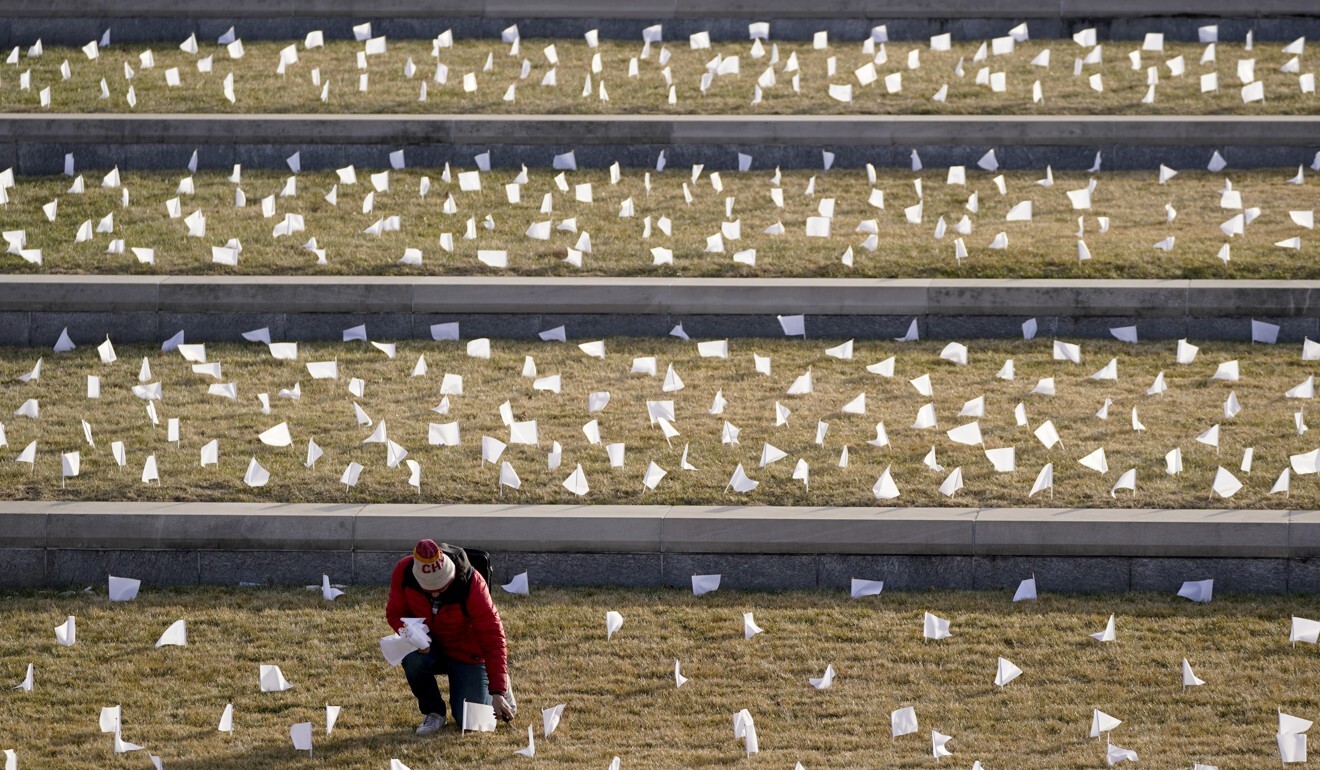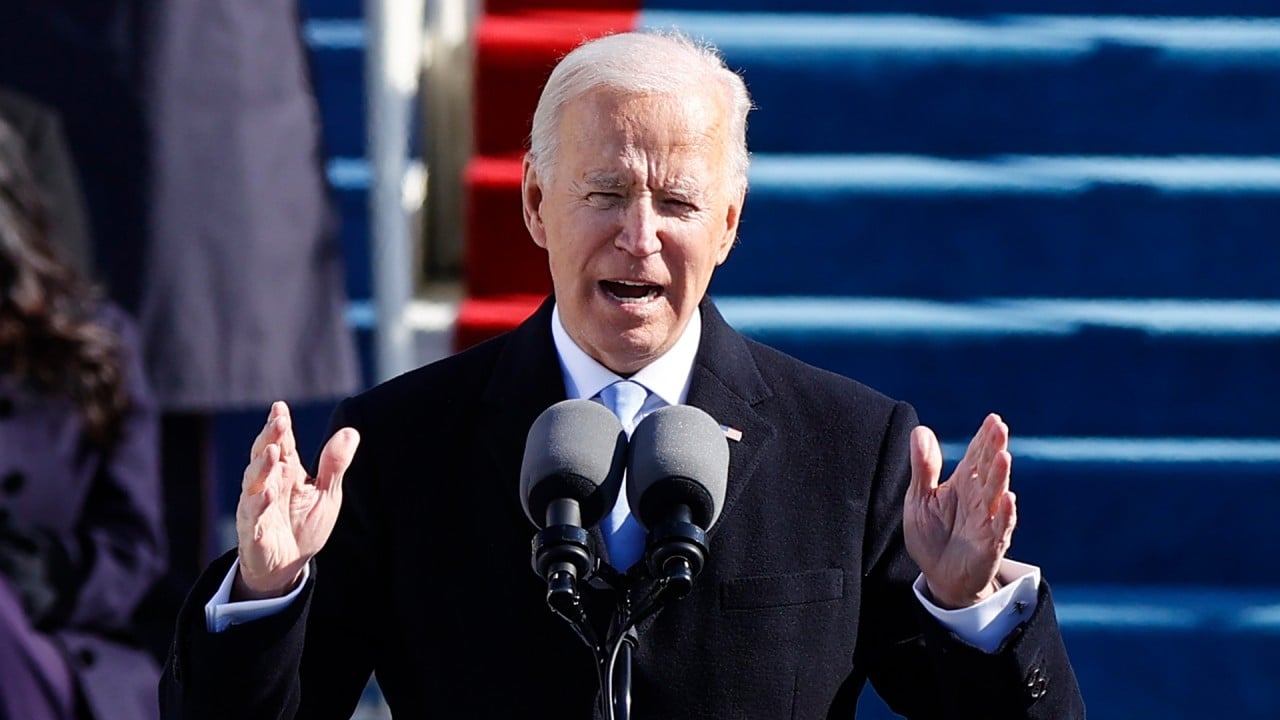
US retracts Trump’s criticism of World Health Organization, reverses withdrawal decision
- Anthony Fauci, who has been named Biden’s chief medical adviser, thanked a meeting of the WHO’s executive board
- Meanwhile, scientists reported early signs that some recent mutations may modestly curb the effectiveness of vaccines
“Under trying circumstances, this organisation has rallied the scientific and research and development community to accelerate vaccines, therapies and diagnostics,” top US scientist Anthony Fauci, who has been named Biden’s chief medical adviser, told a meeting of the WHO’s executive board.
The WHO, he said, had “relentlessly worked with nations in their fight against Covid-19.”
But on his first day in office Wednesday, Biden reversed that decision.

In a letter sent to United Nations chief Antonio Guterres, Biden announced he was retracting Trump’s July 6 notification that the United States intended to withdraw from the UN health agency in 12 months’ time.
“The United States intends to remain a member of the World Health Organization,” Biden wrote.
WHO chief Tedros Adhanom Ghebreyesus hailed the about-face. “WHO is a family of nations and we are all glad that the United States is staying in the family,” he told the executive board meeting.

In his address to the WHO on Thursday, Fauci stressed that Washington – long the agency’s top donor – was committed to resuming the funding.
“The United States … intends to fulfil its financial obligations to the organisation,” he said.
He said Washington planned to “work constructively with partners to strengthen and importantly reform the WHO”.
Biden, said Fauci, was also preparing to issue a directive including the US intent to join the WHO co-led Covax facility, a globally-pooled Covid-19 vaccine procurement and distribution effort aimed at equitable vaccine access.

Meanwhile, scientists were on Thursday reporting early signs that some recent mutations of the virus that causes Covid-19 may modestly curb the effectiveness of two current vaccines, although they stress that the shots still protect against the disease.
Coronavirus cases have surged past 96 million worldwide, fuelled by the emergence of the new variants including one that was first detected in Britain and has now spread to more than 60 nations, according to the World Health Organization. The one that emerged in South Africa, reported to be more contagious than earlier ones, has made it to at least 23.
The research tested coronaviruses from the UK, South Africa and Brazil, and was led by Rockefeller University in New York with scientists from the National Institutes of Health and elsewhere.
Rockefeller researchers got blood samples from 20 people who had received either the Moderna or Pfizer vaccine and tested their antibodies against various virus mutations in the lab.
With some, the antibodies did not work as well against the virus – activity was one-to-threefold less, depending on the mutation, said the study leader, Rockefeller’s Dr Michel Nussenzweig.
“It’s a small difference but it is definitely a difference,” he said. The antibody response is “not as good” at blocking the virus.

The latest findings were posted late Tuesday on an online website for researchers and have not yet been published in a journal or reviewed by other scientists.
Earlier research established that the two vaccines were about 95 per cent effective in preventing Covid-19 illness.
Earlier this month, Pfizer and researchers at the University of Texas Medical Branch said that the vaccine remained effective against a mutation called N501Y from new variants found in the UK and South Africa. Likewise, there was no sign of trouble when they tested some additional mutations.
Moderna and AstraZeneca, which makes a different type of Covid-19 vaccine used in some countries, also have been testing how their vaccines hold up against different mutations.
Coronavirus: is China ready for the mRNA vaccine revolution?
Oxford scientists were preparing to rapidly produce new versions of their AstraZeneca vaccine to combat the more contagious variants, according to The Telegraph, citing a confirmation from Oxford University.
Separately, British Prime Minister Boris Johnson said on Wednesday that the nation’s medicines regulator would be ready and able to give approval to new versions of Covid-19 vaccines designed to counter new variants that may appear.
The United States remains the worst-hit country in the world, with around a fifth of the two million global Covid-19 deaths, and new US President Joe Biden has made the fight against the pandemic his administration’s top priority.

22:24
In first address as president, Joe Biden vows to beat Covid-19, heal politically polarised America
“We need all our strength to persevere through this dark winter. We’re entering what may be the toughest and deadliest period of the virus,” Biden said at his inauguration, where those in attendance wore face masks and social distancing was enforced.
A Johns Hopkins University tracker on Wednesday showed that 405,400 people had died from the disease in the United States, more than the 405,399 total US combat and non-combat deaths in World War II.
Among the Biden administration’s targets is to inoculate 100 million Americans in 100 days, hoping to revive a vaccine roll-out that had floundered in the last weeks of Donald Trump’s presidency.
British hospitals left looking like ‘war zones’ after infection surge
The coronavirus has been growing more genetically diverse, and scientists say the high rate of new cases is the main reason. Each new infection gives the virus a chance to mutate as it makes copies of itself.
E. John Wherry, an immunology expert at the University of Pennsylvania, said the Rockefeller scientists were “among the very best in the world” at this work and their results were concerning.
“We don’t want people thinking that the current vaccine is already outdated. That’s absolutely not true,” he said. “There’s still immunity here … a good level of protection,” but the mutations “do in fact reduce how well our immune response is recognising the virus”.
Associated Press, Agence France-Presse, Reuters
